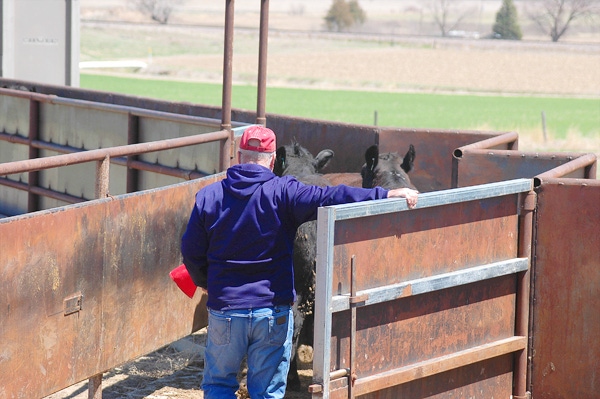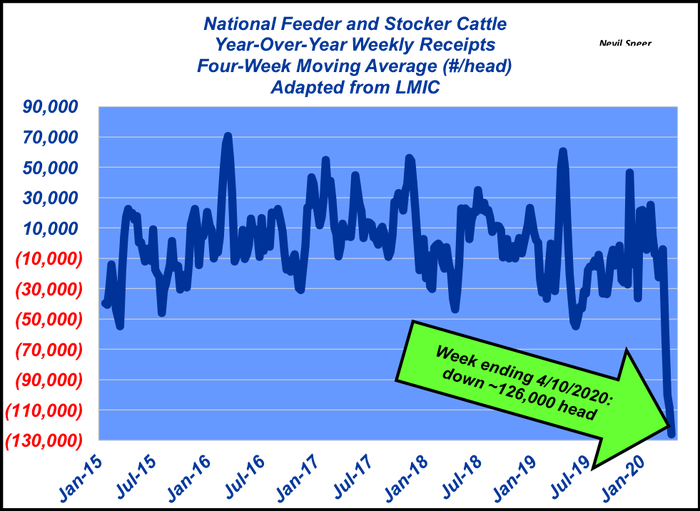COVID 19’s drastic impact on feeder and stocker cattle receipts
Feeder cattle receipts are way down as ranchers ride out the market. But those feeders will have to come to town sometime.
April 16, 2020

COVID-19 is wreaking havoc everywhere. There’s really no aspect of the global economy that hasn’t been influenced by the sudden stop in activity.
The fallout has been especially detrimental for the food business. That influence has spilled over into the beef and cattle markets in dramatic fashion—creating shifting fundamentals, increased volatility and sharply lower cattle prices.
One of the significant dynamics in recent weeks has been the negative influence on feeder market volume. This week’s graph highlights just how sharp that decline has been. The data represent year-over-year difference in weekly receipts; the trendline representing the four-week moving average.
Clearly, we’ve witnessed some big moves in previous years. Those are usually driven by the influence of both weather and the market. However, this year’s decline is markedly different. During the past six weeks, the industry has recorded total sales of 536,000 fewer head versus 2019. The four-week moving average is now running down 126,000 head.
That’s all the outcome of social distancing and farmers/ranchers trying to ride out the softer market, deferring sales to a later date with hopes of an improved market. That has implications throughout the industry.

For example, it means livestock markets are also experiencing sharp declines in revenue. And those feeder cattle haven’t disappeared, they’re just being held at home. Eventually, that’ll likely be reckoned with a surge in feeder cattle placements in months to come, and that’ll further pressure the deferred live cattle futures contracts when that occurs.
This will be an important component to monitor in the coming weeks and months. Stay tuned!
Nevil Speer is based in Bowling Green, Ky. and serves as director of industry relations for Where Food Comes From (WFCF). The views and opinions expressed herein do not necessarily reflect those of WFCF or its shareholders. He can be reached at [email protected]. The opinions of the author are not necessarily those of beefmagazine.com or Farm Progress.
About the Author(s)
You May Also Like




.png?width=300&auto=webp&quality=80&disable=upscale)
